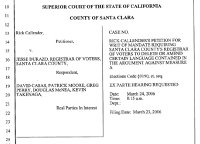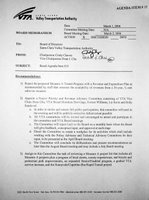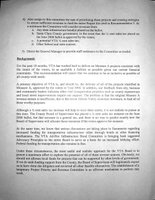Essentially, the Mercury News is asserting that the 2/3 voter approval is almost impossible to obtain and therefore the sleazy tactic of selling specific projects as a general tax is justifed.
If we look beyond Santa Clara County, there are good reasons why we should reject this assertion.
- In November 2003, San Francsico voters approved Proposition K, a 1/2 cent sales tax for transportation, by nearly 75%.
- In November 2004, San Mateo County voters approved Measure A, a 1/2 cent sales tax for transportation, by just over 75%.
- Also in November 2004, Marin County voters passed Measure A, a 1/2 cent salex tax for transportation, by 71%
So the 70% voter approval of the 2000 Measure A in Santa Clara County, during the peak of the high-tech bubble, isn't that quite spectacular or is it?
The major difference between these taxes passed by voters in other counties and ours is that other counties tend to have honest and inclusive discussions about the funding needs and spending priorities. San Mateo County, for instance, held weekend transportation planning workshops around the county to solicit community input. Also, all of these proposals did not include any "marquee" BART extensions that are supposedly poll well (according to SVLG) but would bankrupt the counties.
Santa Clara County, once again, chose a path that limits honest discussions and public participation. Ron Gonzales, Carl Guardino, and Rod Diridon cannot accept themselves being challenged in public on questionable policies. If SVLG and other politicians believe that the county voters will support the idea of the San Jose BART extension be funded at the expense of Caltrain and local transit services, and diverting sales tax revenue from the north and south county to downtown San Jose, Santa Clara County should have taken the "high road." Santa Clara County does not have to create a smokescreen by blurring specific projects with a general tax and create confusion among voters, as a way to get around the 2/3 voter approval requirement.






